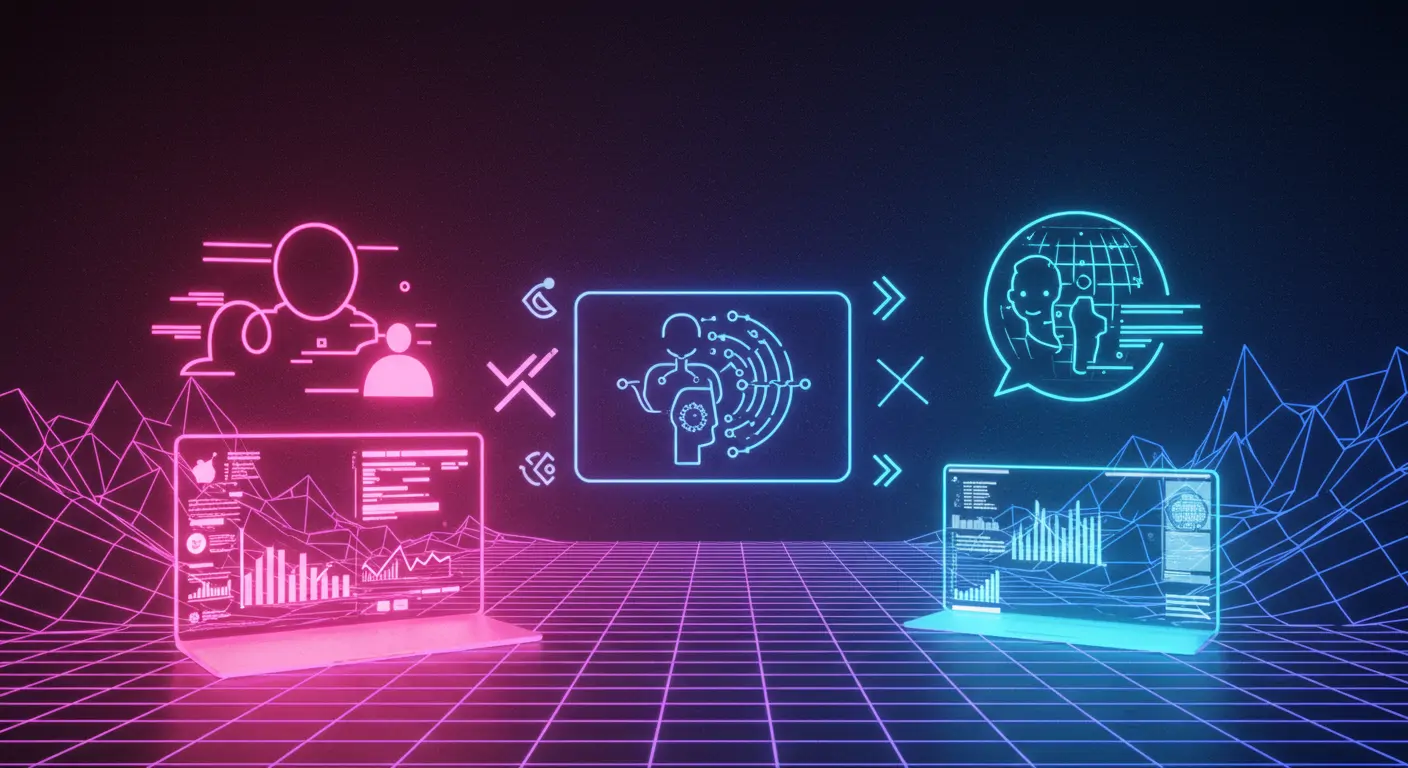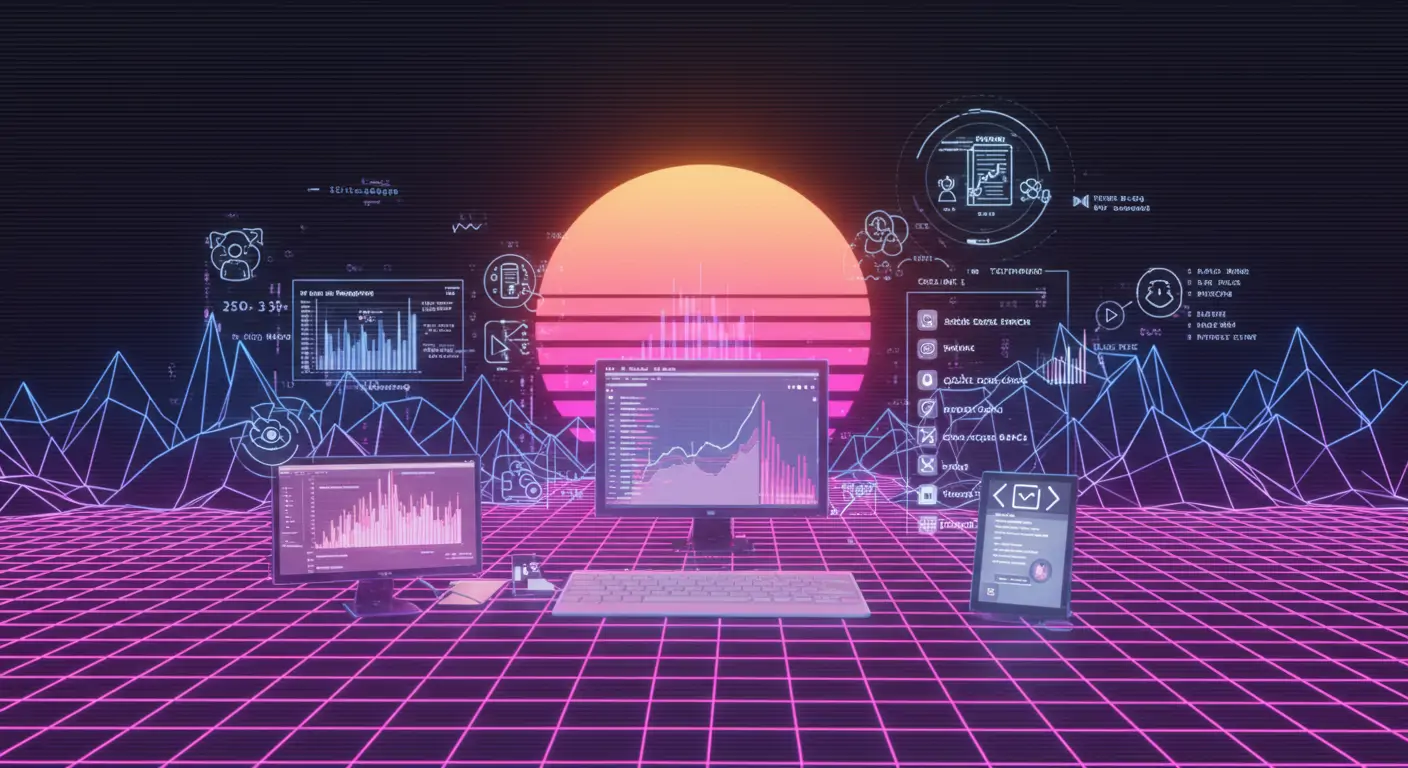Introduction: Why This Matters Now
In early 2025, OpenAI's latest autonomous coding agent, Codex 3.0, demonstrated the ability to reduce development time by 40%, spurring a significant shift in how software is created. This trend signifies a monumental change in the tech industry, as these AI-driven tools not only enhance efficiency but also redefine developer roles and workflows. Everyone from developers to CTOs, and even investors, will need to adapt to these rapid changes. Estimated read time: 12 minutes.
The Current State: What's Happening Right Now
The autonomous coding landscape has evolved rapidly. By mid-2025, companies like GitHub, JetBrains, and Microsoft are leading the charge:
- In March 2025, GitHub Copilot X was released, boasting a 35% increase in code completion accuracy due to its enhanced machine learning algorithms.
- JetBrains, in April 2025, launched IntelliCode 2.0, integrating deeper learning capabilities that enhance developer productivity by 50%.
- Microsoft's Visual Studio now features CoCoder, which automates repetitive tasks, reducing errors by 60%.
According to Gartner, the market for autonomous coding agents is projected to reach $18.4 billion by 2027, escalating from just $3.2 billion in 2023. Traditional development approaches are falling behind as these AI agents outpace human developers in speed and accuracy.
Key Drivers: What's Fueling This Trend
Driver 1: Technical Advancements
The integration of neural networks and natural language processing (NLP) has significantly advanced coding agents. OpenAI reported a 150% improved efficiency in logical reasoning tasks with the latest models.
Driver 2: Economic Pressures
With rising demand for rapid software deployment, companies are under pressure to reduce time-to-market. Autonomous coding agents have shown to cut development cycles by up to 42%, according to a 2024 report by McKinsey.
Driver 3: Workforce Evolution
There is a growing skills gap in the tech industry. A 2024 survey by Stack Overflow found that 78% of developers believe reskilling for AI tools is crucial to remain relevant.
Real-World Impact & Case Studies
Case Study 1: Microsoft
Microsoft integrated CoCoder into Azure DevOps in January 2025. This resulted in a 30% reduction in bug-related incidents and a 25% increase in deployment frequency. Key lesson: Blending AI with cloud-based solutions can significantly enhance software reliability.
Case Study 2: Atlassian
Atlassian's JIRA integrated AI agents in April 2025, automating over 40% of task management activities, improving team productivity by 35%. Key lesson: Task automation through AI can lead to substantial efficiency gains.
Industry Implications
For Developers
- Learn AI integration techniques
- Explore roles focusing on AI-assisted development
For Businesses
- Rethink software lifecycle strategies
- Gain competitive advantage with faster product releases
For Investors
- Identify startups leveraging AI coding tools
- Assess risks in traditional development models
Challenges & Criticisms
While AI coding agents promise efficiency, there are concerns about over-reliance and potential job displacement. Critics argue that excessive automation might lead to loss of human oversight, increasing vulnerabilities. A 2025 study by MIT highlights the risk of security flaws creeping in due to AI's decision-making constraints.
Future Outlook: What's Next
In the next 6-12 months, expect more companies to integrate AI agents into their workflows, with a predicted 75% adoption rate among the top 500 tech firms by 2026. Long-term, autonomous coding agents may evolve to design entire systems with minimal human input, revolutionizing not only workflows but also the nature of coding itself. Staying updated with AI trends and technological skills will be crucial for adaptation.
Frequently Asked Questions
- How quickly can companies integrate these tools? Integration can vary but typically takes 6-9 months for full implementation.
- Are developer jobs at risk? While some roles may shift, new opportunities focusing on AI-enhanced coding are emerging.
- What are the main challenges in adopting AI coding agents? Data privacy and security concerns are the primary adoption barriers.
- Will traditional coding become obsolete? No, traditional skills remain vital in guiding AI and handling complex problems.
Conclusion: Key Takeaways
- Autonomous coding agents are reshaping developer roles and software lifecycles.
- Key drivers include technological advances and economic pressures.
- While offering benefits, they also pose challenges related to oversight and job roles.
- Staying informed and adaptable is essential for navigating these changes.
Next Step: Dive deeper into AI integration strategies to enhance development workflows. Visit our guide on leveraging AI in software development.




